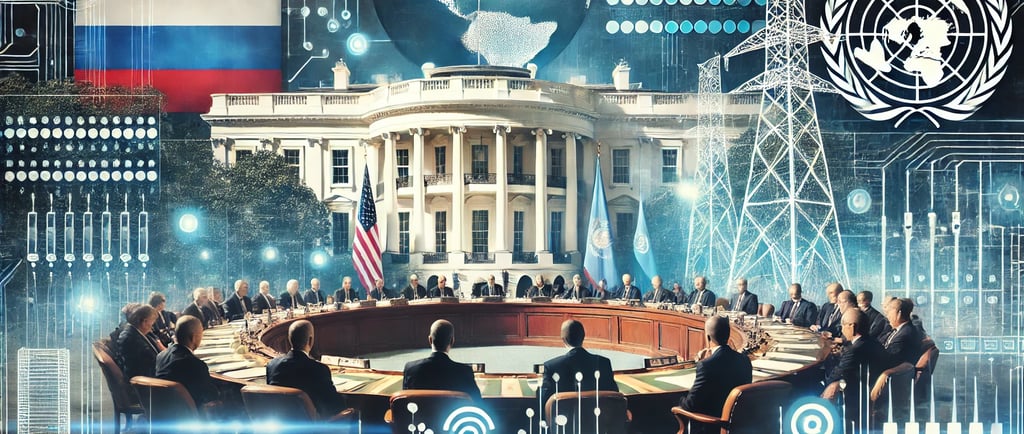White House Condemns Russia as UN Members Call for Stronger Critical Infrastructure Resilience
This blog post discusses the Biden administration's condemnation of Russia for its role in facilitating ransomware attacks on healthcare systems. It highlights a recent UN Security Council briefing that emphasized the urgent need for international cooperation to enhance cybersecurity and protect critical infrastructure. The post outlines the rising trend of ransomware incidents affecting healthcare, details the U.S. government's strategy to combat these threats, and explores the challenges posed by Russian cybercriminals, calling for a unified global response to safeguard essential services.
HEALTHCARERANSOMWARE
11/14/20241 min read


The Biden administration has taken a firm stance against Russia's role in harboring cybercriminals responsible for ransomware attacks on healthcare facilities. During a recent UN Security Council briefing, Anne Neuberger, deputy national security adviser at the White House, accused Russia of allowing "ransomware actors to operate from their territory with impunity."This condemnation comes as ransomware attacks on healthcare institutions continue to rise at an alarming rate. The FBI reported 249 such attacks against U.S. healthcare targets in 2023, with 191 attacks occurring in just the first half of 2024. These attacks have led to delayed medical procedures, disrupted patient care, and strained acute care provisioning.
In response to this growing threat, 54 UN member states issued a joint statement calling for collective action to strengthen cybersecurity and resilience of critical infrastructure, particularly in healthcare and emergency services. The statement emphasizes the need to confront and disrupt the ransomware threat, recognizing its detrimental impact on all nations.
The Biden administration's three-pronged approach to tackling ransomware has shown some progress:
Boosting cyber resilience of American organizations
Treating ransomware as a national security threat
Using diplomacy to dismantle cybercriminal "safe havens"
Initiatives like the Counter Ransomware Initiative and pledges from 41 nations to never pay ransoms have contributed to these efforts. However, the challenge of arresting Russian suspects remains, especially given the ongoing conflict in Ukraine.
As the U.S. approaches a potential change in leadership with the upcoming 2025 presidential transition, questions arise about the future of anti-ransomware initiatives and diplomatic approaches to Russia. Regardless of potential shifts in U.S. policy, other countries may continue to collaborate with American law enforcement agencies in the fight against cybercrime.
The international community's call for improved critical infrastructure resilience underscores the global nature of the ransomware threat and the need for continued cooperation to protect vital services, especially in the healthcare sector.

